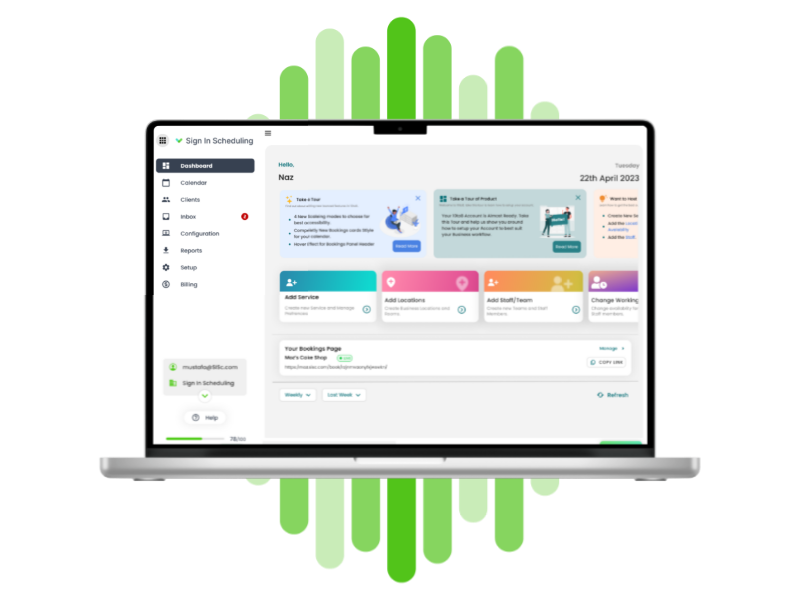It’s Monday morning. The coffee is brewing and you’re in front of your computer preparing to tackle...
13 Top Tips on How to Reduce Stress in the Workplace
Stress in the workplace is a huge problem in today’s society. Did you know that workplace stress is one of the biggest causes of health problems in the United States? According to the American Psychological Association, workplace stress costs American businesses an estimated $300 billion per year!
Stress can lead to all sorts of problems at work, both for the individual and for the company. It can lead to a wide range of health issues, including heart disease, high blood pressure, and chronic pain. That’s why stress management in the workplace is so important.
So, let’s discuss the most common causes of work-related stress, why reducing stress in the workplace is so important, and some top tips for preventing stress at work!
The most common causes of stress in the workplace
When it comes to stress in the workplace, there are a few common culprits:
- Job insecurity,
- Long hours,
- Low pay,
- Lack of control over work
- Too much work
- Poor relationships with colleagues
One of the most frequent causes of workplace stress is having too much on your plate. If you’re constantly feeling overwhelmed by your workload, it’s eventually going to take a toll on your mental and physical health. The same thing can be said about unrealistic workplace expectations. If you feel like you’re constantly being asked to do the impossible, it’s going to lead to a lot of frustration on your part and most likely stress.
Another common cause of workplace stress is office politics. If you’re constantly dealing with workplace drama it can be very draining and stressful. This is why working for a business that prioritizes company culture is so important.
It’s vital to talk about the most common causes of stress in the workplace because the key to reducing stress is to first identify the causes. Once you know this, you can then take steps to mitigate them.
If you can’t eliminate the cause of stress, then you can try to find more effective ways to cope with it. For example, if you’re constantly being asked to work long hours, try to schedule some time for yourself outside of work so you can have a healthy balance. If you’re dealing with office politics, try to build strong relationships with your colleagues so you can better navigate the situation. Stress management in the workplace is sometimes just as important as prevention.
Why reducing stress in the workplace is so important
Workplace stress can have a serious impact on your health. If you’re constantly feeling stressed, it can lead to anxiety, depression, and a host of other mental and physical health problems.
Stress can also prevent you from staying productive. If you’re constantly struggling to focus because you’re worried about your workload, you’re not going to be as productive as you could be.
Lastly, workplace stress can also lead to burnout. Burnout is a state of physical, mental, and emotional exhaustion that can be caused by prolonged or chronic stress. If you’re constantly feeling stressed and overwhelmed, you’re at risk for burnout.
So why is reducing workplace stress so important? Because it can have a serious impact on your health, productivity, and well-being. If you’re struggling with stress, take some time to assess the situation and figure out what you can do to reduce the amount of stress in your life.
How to reduce stress in the workplace
So, here are a few things you can do to prevent stress in the workplace:
Take advantage of flexible hours and remote working
If your job allows for it, take advantage of flexible hours or work from home. Working from home has boomed in popularity over the last year, and, these days, many companies either offer a fully remote policy or some sort of home and office split.
This type of working arrangement can be a great way to reduce stress, as it gives you more control over your working environment and schedule, and allows you to better manage your time. Plus, it can be especially useful if you’re a working parent or if you have a long commute, and it allows you to reduce your carbon footprint too!
Make time for yourself outside of work
There’s a reason the saying ‘work hard, play harder’ exists! It’s important to make time for yourself outside of work. This can help you relax and recharge, so you’re not constantly running on empty. Make sure to schedule in some ‘me time’ every week, whether that means going for a run, taking a yoga class, or just reading your favorite book.
Take time off
As well as taking some me-time every day, it’s also important to get away from the office every now and again. Now, when we say take time off, we mean actually take time fully away from and switch off from work.
There’s no point jetting off to a Spanish island and spending the entire time laying on the beach checking your emails on your phone! That’s not going to do anything for your stress levels. If you’re going to take time off, make sure you’re actually taking a break from work. This means disconnecting from email and social media and really enjoying your time away.
Talk to someone
If you’re struggling to cope with stress in the workplace, it’s important to talk to someone about it. This could be a friend, family member, medical professional, work colleague, or even your boss if you feel comfortable. Talking to someone can help you offload some of the concerns you’re feeling and figure out a plan to better deal with them – remember, a problem shared is a problem halved.
Stress is a normal part of life, but that doesn’t mean it’s something we have to put up with. If you’re feeling overwhelmed by workplace stress, take some time to assess the situation and figure out what you can do to reduce the amount of stress in your life. By taking some proactive steps, you can help improve your stress management in the workplace and prevent it from being a problem.
Take time away from your desk throughout the day
This is another very important factor and something that a lot of people don’t do enough of. Even if you have the best and comfiest remote office setup in the world, it’s important to take time away from your desk to move your body and give your eyes a break from staring at a screen all day.
Try to get up and walk around for a few minutes every hour, or even better, go outside for some fresh air. Taking regular breaks will help improve your concentration and energy levels, and reduce stress.
Plan ahead
One of the best ways of reducing stress in the workplace is to plan ahead. This can help you avoid last-minute scrambling and feeling overwhelmed.
When you have a big project coming up, sit down and map out a plan of action. Break the project down into smaller tasks that you can complete over time. This will help you stay on track and avoid feeling overwhelmed by the project as a whole.
Identify your triggers
Another useful step in reducing workplace stress is to identify your triggers. What are the things that tend to trigger your stress? Is it tight deadlines, working late nights, or having too much on your plate? Once you know what your triggers are, you can start to take steps to mitigate them. This might mean saying no to extra assignments or learning to delegate tasks.
Set boundaries
It’s important to set boundaries with your work. This means knowing when to say no and not overloading yourself with too much work. It’s okay to turn down assignments or projects that are outside of your scope. You can’t do everything, and that’s okay. Learning to set boundaries will help you avoid taking on too much work and feeling overwhelmed.
Build strong relationships with your colleagues
One of the best ways to reduce stress in the workplace is to build strong relationships with your colleagues. This can help you feel more supported and less isolated at work. Make an effort to get to know your co-workers and build a supportive network. This will make it easier to ask for help when you’re feeling overwhelmed and stressed.

You can build stronger relationships by taking the time to socialize with your colleagues, participating in team-building activities, and being a good listener.
Go on team outings
Team outings are a great way to promote a healthy company culture. They can help co-workers bond and build relationships with each other. Team outings can also be a fun way to relieve stress, promote a healthy work-life balance, and promote employee appreciation. If you can, try to arrange team outings on a regular basis whether it’s just simple drinks for an hour after work or a more organized event with your company. If large company events are not within your authorization, maybe suggest it to more senior members to see if something can be done.
Adopt a healthy lifestyle
This is often one of those factors that are not spoken about enough, but one of the best ways to reduce stress in every aspect of your life (including work) is to adopt a healthy lifestyle. This includes eating healthy foods, exercising regularly, and getting enough sleep. When you take care of yourself, you’ll be better able to handle stress and stay calm under pressure.
Nip conflicts in the bud as soon as possible
Conflicts with colleagues can be a major source of stress in the workplace. It’s important to nip these conflicts in the bud as soon as possible. This might mean voicing your concerns instead of keeping them to yourself, dealing with disagreements in a calm and controlled manner, or trying to resolve conflicting opinions in a constructive way. By nipping conflicts in the bud, you can prevent them from escalating and causing even more stress.
Be proud of your hard work
Last but not least, it’s important to be proud of your hard work. This doesn’t mean that you should strive for perfectionism, but it does mean taking pride in the work that you do and knowing that you’re making a valuable contribution.
When you have this attitude, it’s easier to let go of stress and enjoy your job. It’s also worth mentioning that, if you get the chance, show off what you’ve done to your colleague. For example, if your company does regular stand-ups or team meetings, don’t be shy and be proud of what you’ve accomplished.
Conclusion…
Overall, reducing stress in the workplace is incredibly important for your health and well-being. By following these tips, you can start to reduce stress in your work life and create a more positive and productive environment for yourself. Try to implement one or two of these tips into your routine and see how it goes! Remember, small changes can make a big difference and it’s totally okay to put yourself first.






Blog comments